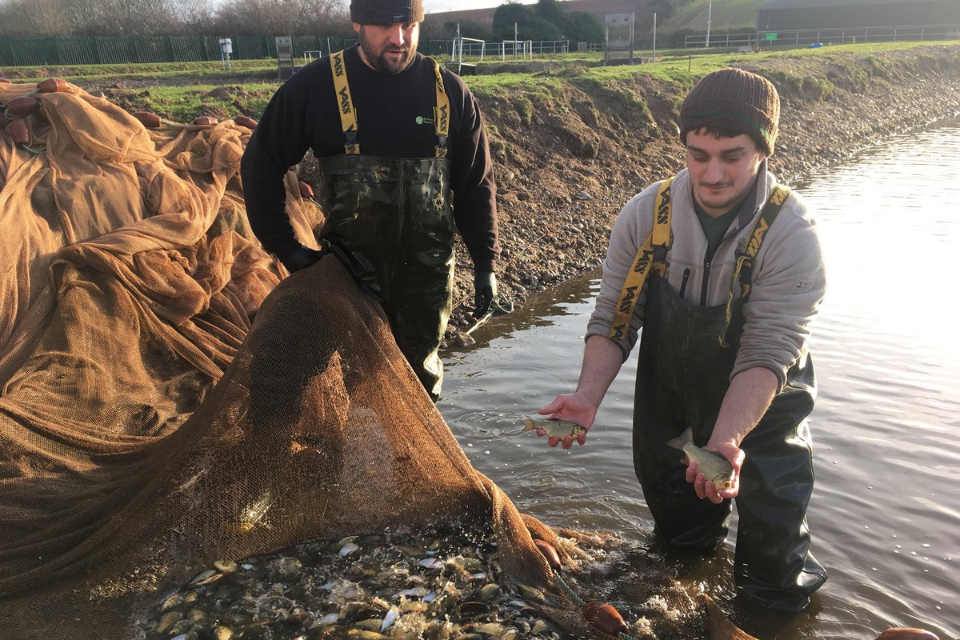The Environment Agency's National Coarse Fish Rearing Unit in Calverton, Nottinghamshire produced and stocked 510,488 fish in 2024.
- The National Coarse Fish Rearing Unit in Calverton, Nottinghamshire produced and stocked 510,488 fish in 2024 - an increase of 6.5% on the previous year
- Over half a million, high quality, fit for purpose fish were released into the wild throughout England
- The national fish farm is funded by income from rod licence fees
Every year, the National Coarse Fish Rearing Unit at Calverton in Nottinghamshire breeds coarse fish for release into rivers and still waters across England to help boost fish populations.

Netting the fish at Calverton fish farm
In 2024, the fish rearing unit produced and stocked 510,488 fish into waterways around the country - an increase of 6.5% on the previous year when 478,937 were bred and stocked.
In addition, just under 2 million advanced reared larvae were also stocked out into the wild.
Richard Pitman, Fish Farm Technical Specialist at the National Coarse Fish Rearing Unit said:
The work of our national fish farm is funded by income from rod licence fees, so it's great to see we are continuing to produce strong and healthy fish needed for restocking and recovery.
Occasionally a helping hand is needed to restore the natural balance following a pollution incident or decline, or to create new fisheries and opportunities for anglers. The annual national restocking programme is funded by income from rod licence sales and usually takes place in the winter.
We take great care in ensuring that every fish is fit for purpose when stocked out into the wild. During their 18 months+ at the farm, the fish are fed live natural food, they encounter a range of flora and fauna and are trained in flowing conditions while being grown in the earth ponds.
Winter is a good time to introduce the fish into rivers, as the water temperatures are low and this minimises any stress on the fish, giving them the best possible survival rates. It enables them to acclimatise to their new surroundings, ahead of their spawning season in the spring.
The spawning season was challenging in 2024 due to the increased rainfall and cool temperatures during the spring.
Richard explains:
This made locating and obtaining sufficient broodstock at the optimum time difficult. These conditions also impacted the start of our second-year production cycle. With the storms and reduced temperatures experienced through April and into May, live food production and pond advancement was reduced causing a knock-on effect to the stocking programme.
Despite the challenging start in 2024, the team at Calverton showed their dedication and commitment throughout the growing season to produce an increase in fish production compared to last year. Their diligence has resulted in over half a million, high quality, fit for purpose fish, being released into the wild throughout England.
Fish also play a critical role in sustaining a river's finely balanced eco-system, so the wider natural environment also gets a boost from restocking.






